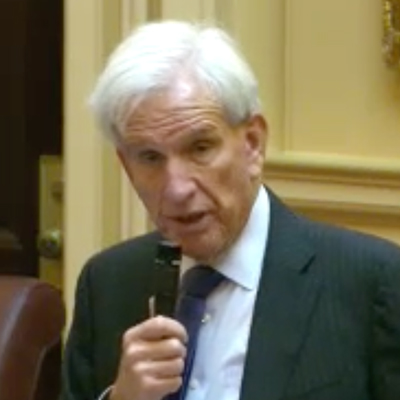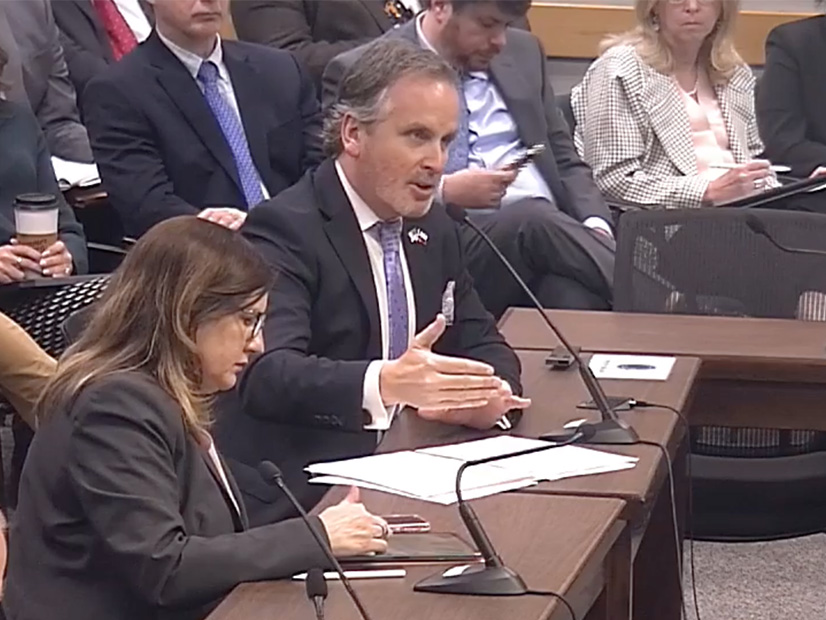Compromise bills that will change how utility rates are regulated in Virginia sailed through both chambers of the General Assembly during the last day of its session Saturday.
The legislation, which was passed nearly unanimously, is backed by Gov. Glenn Youngkin (R) and the state’s largest utility, Dominion Energy (NYSE:D).
The legislation removes some rate riders and will set Dominion’s return on equity at 9.7%, which is about halfway between the current 9.3% and the 10.03% in an earlier version of the bill. That rate will be in effect later this year until 2025, when the State Corporation Commission will set its rates, freed from basing them on a peer group of its fellow Southern utilities that had been the practice in Virginia for more than a decade.
“I applaud the legislators who took the lead on writing and negotiating this landmark bill, which will save customers money on their monthly bills, restore the independent oversight of the State Corporation Commission and support the long-term stability of Virginia’s largest electric utility,” Youngkin said. “Today, the General Assembly came together and put Virginians first.”
 Senate Majority Leader Richard Saslaw (D) | Virginia Senate
Senate Majority Leader Richard Saslaw (D) | Virginia SenateThe companion bills — SB 1265, introduced by Senate Majority Leader Richard Saslaw (D), and HB 1770, introduced by Del. Terry Kilgore (R) — cleared the Senate unanimously in votes Saturday and only drew one opposing vote in the House of Delegates from Del. Dave LaRock (R).
“What we got here today, though, finally is a good, well rounded deal,” Kilgore said. “A deal that’s good first and foremost, for Virginians. And a deal that’s good for Dominion, a utility whose health that we need to deliver energy reliably.”
The bill shifts $350 million from rate adjustment clauses into the base rates and spreads $1.7 billion in fuel costs that Dominion has incurred because of recent price rises over 10 years, Saslaw told his fellow senators as they debated the bill on the floor.
“Instead of getting a $17/month increase on July 1, it won’t happen,” Saslaw said. “It’ll be pennies more to the average bill as a result of being able to spread it out like that.”
Getting rid of the rate adjustment clauses will save the average customer between $6.50 and $7/month, he added.
The bill also includes changes to Dominion’s “rate collar,” so that if the utility over-collects by more than 70 basis points on its ROE, 85% of the excess will return to customers; if it over-collects by 150 points, all of it goes back to consumers.
“We’re going to vote on a bill that was not dictated to us by Dominion Power, but rather it was people working together from different viewpoints: the ratepayer viewpoints, the power company viewpoint, the industrial consumer viewpoint, even environmentalist viewpoint,” Sen. John Chapman Petersen (D) said. “Not everybody got what they wanted. But you didn’t have one entity dominating the conversation.”
Senate Minority Leader Thomas Norment (R) pushed back on the notion that Dominion dictates the commonwealth’s electricity policies, noting that major corporations were behind the push to deregulate the electric industry more than two decades ago; years later, many of them also supported legislation stopping retail deregulation from going into effect.
How the law gets implemented is ultimately up to the SCC, but it only has one member now, and the legislature did not address the two vacancies, Sen. Scott Surovell (D) said. Currently the SCC only has Jehmal Hudson serving as a commissioner after Judith Jagdmann stepped down, and the legislature did not reappoint Angela Navarro, who had finished out Mark Christie’s term after he left to join FERC.
Surovell had introduced SB 1482, which would have added a fourth commissioner to the SCC, then eliminated that position when the next vacancy occurred, in an effort to break the logjam at the legislature.
“In order for somebody to be looking out for the little guy, we have to have a regulator that’s ready to follow through on all the discretion that’s been given under this bill,” Surovell said. “And right now, there’s only one commissioner sitting on the SCC and there’s two vacancies. And that’s not getting resolved today.”
Dominion welcomed the legislation’s passage, calling it a win for consumers and regulatory oversight.
“It will lower electricity bills for our customers, reduce the impact of rising fuel costs and strengthen SCC oversight,” a utility spokesman said in a statement. “We appreciate the leadership of the patrons, Gov. Youngkin, Attorney General [Jason] Miyares and lawmakers from both parties in getting this bipartisan legislation across the finish line.”




